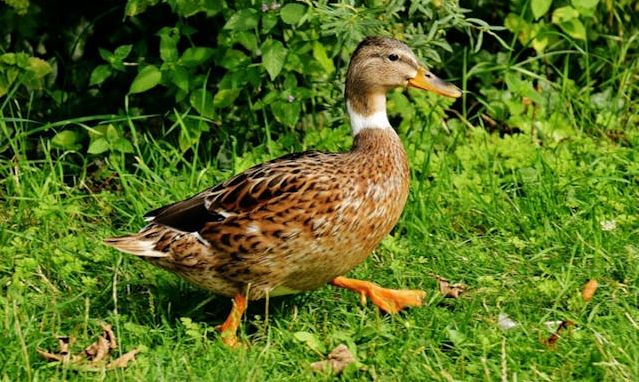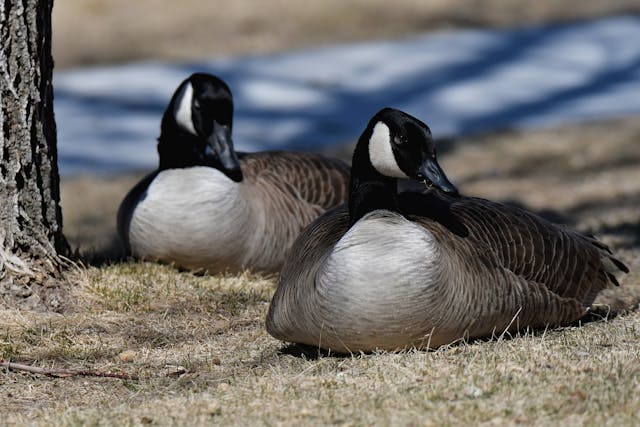Unravelling the intricacies of Arkansas’s annual duck hunting season is an indispensable undertaking for both local residents and visiting hunters. Known globally as the “duck capital of the world,” Arkansas becomes a bustling hub for duck hunting aficionados at the onset of every hunting season. Recognizing when it’s permissible to hunt is equally significant, ensuring a fruitful experience that complies with regional regulations and ethical principles.
The query that frequently surfaces – “When does duck season kick off in Arkansas?” is one whose answer fluctuates annually. Nonetheless, it typically begins around late November and extends into late January of the following year. Throughout this interval, enthusiasts are allowed to embark on quests for various species like Redheads, Canvasbacks, Pintails among many others. Abiding by official timelines whilst respecting conservation laws ensures that Arkansas continues its legacy as an abundant waterfowl haven.
- The Arkansas duck hunting season typically commences in late November and concludes in late January. However, these dates may vary each year due to various factors such as weather conditions and duck population numbers.
- During the Arkansas duck hunting season, hunters are permitted to hunt a variety of species. Some of the most popular include Redheads, Canvasbacks and Pintails. These species are abundant during this period, providing hunters with ample opportunities for successful hunts.
- It’s crucial for all hunters – both residents and visitors – to abide by official timelines set by local authorities. Hunting outside these designated periods is not only illegal but also detrimental to conservation efforts aimed at preserving waterfowl populations.
- Hunters should also adhere strictly to regional regulations and ethical principles when participating in Arkansas’s annual duck hunting season. This includes respecting private property boundaries, practicing safe gun handling techniques, following bag limit restrictions among other rules.
- Understanding the intricacies of Arkansas’s annual duck hunting season can enhance your overall experience while ensuring that you contribute positively towards maintaining the state’s reputation as an abundant waterfowl haven.
In conclusion:
- Ensuring adherence to all guidelines related to Arkansas’s annual duck hunting season guarantees not only a fulfilling experience but also aids in upholding its status as a globally recognized “duck capital.”
- By observing legal timelines for hunts and adhering strictly to regional regulations & ethical principles, we can ensure that future generations continue enjoying this unique aspect of Arkansan culture.
Arkansas Waterfowl Hunting Regulations
Under the vigilant watch of the Arkansas Game and Fish Commission (AGFC), the intricate choreography of waterfowl hunting season is deftly executed, a testament to sustainable utilization of this precious bounty. The query that invariably kindles in every huntsman’s thoughts: “When does the duck-hunting chapter unfurl in Arkansas?” Ordinarily, it rises like a phoenix from late November, carrying its flight into January’s tail end. However, bear in mind that these dates are not set in stone but rather waver with each passing year. It falls upon hunters’ shoulders to validate these particulars either by scouring through AGFC’s official online portal or seeking clarification straight from their offices.
Every hunting epoch bows down before an iron-clad framework of rules- a meticulously woven tapestry aiming to preserve wildlife tribes whilst ensuring justness and safety among those who stalk them. These directives lay down vital markers such as permissible hunt timespans, bag ceilings, designated hunting territories and identifying legal waterfowl quarry. Upholding these guidelines should be etched on every hunter’s conscience; any deviation may invite grave repercussions including hefty fines or even incarceration. It is therefore indispensable to immerse oneself fully into understanding these regulations before embarking on your hunting escapades.
Important Dates for Arkansas Duck Season

In the realm of waterfowl pursuit, the chronology is paramount. The season for hunting ducks in Arkansas traditionally commences in November and persists until January’s finale. It bears mentioning that these temporal boundaries exhibit a certain degree of flux each year and are frequently partitioned into three segments to promote responsible hunting norms. Tentatively, the epoch for the 2021-22 spell, according to the edict from Arkansas Game and Fish Commission, will span across November 20-28, December 11-23 with a final segment from December 26 through January 30.
On another note, aficionados of duck hunting often ponder over this query: “What precisely is the optimum month to hunt ducks in Arkansas?” In broad terms, it’s adjudged that late December extending up to January marks peak time for duck hunts within Arkansas’s borders. This interval coincides perfectly with apex migration periods for ducks thereby furnishing hunters ample chances at fulfilling their quota. Nonetheless, one must not overlook how success in this sport also hinges on other variables such as local meteorological conditions along with food supply and aquatic depth levels.
Preparation for Duck Hunting Season
A seasoned hunter is well aware, there’s a certain gravitas to the act of preparing for a triumphant duck hunting season. This truth resonates profoundly when one sets their sights on Arkansas- often lauded as the radiant gem in the waterfowl enthusiast’s crown. With its symphony of flooded timberland, rice fields, and an assortment of wildfowl species, it’s no wonder that Arkansas has become a magnet for hunters across the globe.
The notion of whether or not Arkansas can be crowned “the quintessential duck hunting state” seems almost superfluous given its reputation. However, this decree may be perceived differently depending on personal preferences and past experiences.
Navigating through preparations for hunting season necessitates an intimate understanding of Arkansas’s game laws coupled with a comprehensive knowledge about its topography. Investing time in reconnaissance expeditions prior to the start of the season could very well tip scales favorably once you take your position behind cover. A detailed comprehension spanning from habitat diversity to migratory trends will undoubtedly have significant implications on your hunt results.
And let us not forget: maintaining your shotgun in pristine condition and meticulously selecting decoys and calls can create profound ripples between returning home empty-handed or reveling in a successful expedition. Given adequate preparation, maximizing your experience while traversing through this global hub for Duck Hunting becomes entirely plausible.
Key Locations for Duck Hunting in Arkansas
Across the expanse of Arkansas, a multitude of celebrated locations have established its reputation as a haven for duck hunters. The state’s terrain, abundant with wetlands and expansive rice fields, forms an optimum environment enticing to ducks and consequently drawing in hundreds upon hundreds of hunting enthusiasts each season. A geographical analysis reveals that the southern region is less densely populated, bestowing both the charm of seclusion and challenging landscapes. Those seeking a more communal hunting experience may gravitate towards Northeastern areas where hunting traditions are woven into local culture.
Topping the list for premier duck hunting destinations in Arkansas is undoubtedly the Grand Prairie region. This broad area once adorned by tallgrass now flourishes with numerous rice fields attracting a rich array of waterfowl species. St Francis National Forest also ranks high among preferred spots for hunters considering its unique nature being one of smallest yet most diverse forests nationwide. It prompts many to question – “What is the duck limit in Arkansas?” Although this might undergo minor changes each season, typically it’s set at six ducks per hunter daily by the Arkansas Game and Fish Commission. Regardless of location chosen for hunt, it remains crucial to acquaint oneself thoroughly with regional regulations ensuring strict adherence for responsible and triumphant hunt.
Equipment Needed for Duck Hunting in Arkansas
In gearing up for the prime duck hunting season, it’s absolutely crucial to be well-versed in the ideal gear needed for braving Arkansas’ wild terrain. Often, December is hailed as the golden month for duck hunting – a period when ducks embark on their migratory journey and thus, an opportune time to pack your equipment and stride into nature.
The gear you choose ought not just be resilient but also suited to all weather conditions, specifically crafted with waterfowl hunting in mind — this ensures that your hunt doesn’t falter. The quintessential requisites comprise a dependable shotgun tailor-made for waterfowl pursuits along with cartridges meticulously engineered for targeting ducks.
Waders form another critical component of your equipment arsenal—designed ingeniously to keep you dry amidst the unpredictable dampness prevalent during Arkansas’ fickle Decembers. A device known as a ‘duck call’, famed for its ability to mimic enticing duck sounds thereby luring them towards you, forms another indispensable part of any hunter’s toolkit.
From stealthy camouflage attire right down to decoys and blinds – every piece of equipment serves a pivotal role in ensuring that your venture into duck hunting turns out victorious.
Arkansas Duck Hunting Licenses: What You Need to Know
As you teeter on the brink of your long-anticipated waterfowl expedition in the verdant expanse known as the Natural State, acquiring an Arkansas duck hunting license is a vital precursor. This obligatory permit, dispensed by the Arkansas Game and Fish Commission (AGFC), is not optional – whether you are an inhabitant or a visitor with hunting aspirations. It’s part of a broader framework enacted by the state aimed at managing and preserving our feathered friends for continual sustainable hunts.
Securing this precious license necessitates proof that one has successfully navigated their way through a hunter’s education course if they first drew breath in 1969 or any year thereafter. However, details such as age, domicile status, and anticipated duration of hunting activities can potentially sway both the type of license issued and its associated cost. Moreover, when it comes to pursuing waterfowl specifically, hunters must arm themselves with two additional documents: The Federal Duck Stamp and Arkansas Waterfowl Stamp – both requiring an ink signature scrawled across their face before setting out on your hunt.
FAQs
The initiation and completion dates fluctuate annually, but the hunting period typically stretches from early November to late January. For more precise dates, it’s recommended to visit the official website of the Arkansas Game and Fish Commission.
Some cardinal rules include procuring a proper hunting license, honoring daily bag and possession limits, along with sticking to prescribed hunting hours which are generally half an hour before sunrise until sunset. Always refer back to the most recent rules as laid out by the Arkansas Game and Fish Commission.
Indeed! It’s paramount that one remembers both opening as well closing dates of each year’s hunt season. Moreover, specific dates related to youth hunting days or conservation orders might also be relevant which can be found on their website too.
Preparation entails obtaining necessary equipment, grasping regulations affiliated with huntsmanship thoroughly, choosing suitable site(s) for your sport along with acquiring necessary permits. Being physically conditioned alongside honing shooting skills may give additional benefits.
Favourite spots among enthusiasts range from regions like the River Valley in Arkansas itself through Mississippi Alluvial Plain up till Ozark Highlands plus many others. A multitude of wildlife management areas across this state have become hotspots over time thanks largely due their popularity among those who engage in this activity seriously or casually alike.
Fundamental gear includes a shotgun tailored specifically towards waterfowl sportsmen/women, attire suitable for this particular outdoor activity, decoys of course! a duck call along with blind or other means to camouflage oneself. A retriever dog can prove handy in certain situations as well. Please take note that non-toxic shots are preferred over lead since the latter is strictly prohibited.
Licenses can be purchased either through Arkansas Game and Fish Commission’s official online portal or from authorized dealers offline. Different types of licenses exist based upon whether one is resident, non-resident or even youth. Furthermore, you’ll have to procure a federal duck stamp plus possibly additional permits depending on specifics of area you intend to conduct your hunt in.



